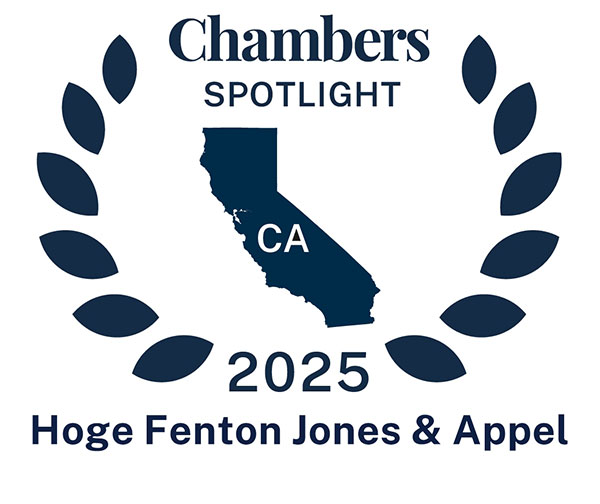Swimming with the Sharks: Creative Lending Strategies for Commercial Real Estate
By Nicole Docherty | 09.5.2025 | Firm Post

Silicon Valley Real Estate Breakfast Recap: Shark-Tank Style Financing Insights
On August 26, 2025, Hoge Fenton hosted the Silicon Valley Real Estate Breakfast, bringing together industry professionals for a lively discussion on commercial lending. The highlight of the event was a “Shark Tank” style skit, where loan providers weighed in on how best to finance a hypothetical deal for “David and Wanda,” a married couple seeking to purchase and renovate a building for their video security systems business. They had a contract to buy a building and now needed to secure financing.
David and Wanda’s desired property had common challenges: a bit more than 50% of the space would be owner-occupied, the couple planned to rehab and lease portions of the building, they needed a yard for equipment and vehicle storage, and they wanted a fuel tank onsite that raised permitting questions. There was also a 90-day due diligence period to take into consideration.
Our panel of “sharks” included:
Jesse Smith with Bank of America – representing “Big Banks”
Jeff Perkins with Heritage Bank of Commerce – representing “Community Banks”
David Bruni with Slatt Capital – representing “Loan Brokers and Hard Money Lenders”
Bruce Whitaker with TMC Financing – representing “Nonprofit SBA Lenders”
David Scarpinato with Lee & Associates played “David” of “David and Wanda.”
The Sharks’ Takeaways
Jeff Perkins of Heritage saw his proposal to be favorable due to its owner-user structure, which lenders typically value. Jesse Smith of Bank of America flagged the construction component as a risk and offered an SBA 504 loan with either 25% down without the construction component, or 50% down if construction was included. Bruce Whitaker of TMC Financing made a strong pitch for a 504 loan but noted the challenge of a short turnaround of the 90-day due diligence period and noted that the above-ground fuel tank would not be covered under SBA financing and should be added post-purchase. David Bruni of Slatt Capital approached the situation from an investor’s perspective, warning against including the fuel tanks. He further suggested hard money/bridge financing for 30-90 days to fund improvements, then appraise the property inclusive of the upgrades to refinance at a stronger loan-to-value ratio.
The discussion also covered loan structures, noting that SBA 7(a) loans are more flexible (covering almost all business needs but with a 3-year prepayment penalty), while SBA 504 loans are typically better suited for real estate acquisitions (though they carry a 10-year prepayment penalty. All of the lenders required personal guarantees from David and Wanda. Finally, panelists emphasized the importance of choosing the right appraiser, especially for special-use properties where valuation can make or break financing.
The event provided attendees with practical insights into the complexities of commercial financing as well as a reminder that, in today’s market, structuring the right deal requires creativity, caution, and the right lending partner.










